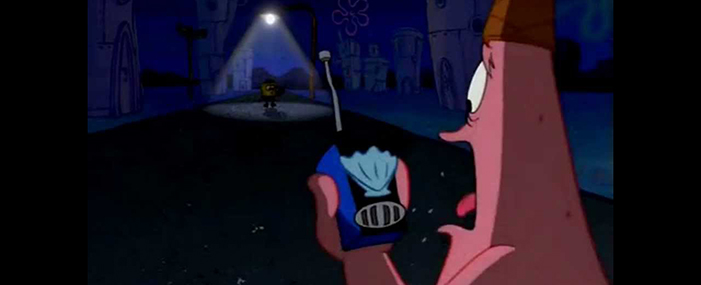Blogging Hamlet: Part 4

I have a question about Hamlet, one that has plagued me for years, and until I know the answer I will never know peace. I’m hoping you guys can help. There’s a simple solution, I’m sure, and probably I’m just too dumb to know what it is, but my question is this: why in God’s name does Hamlet pretend to be crazy?
Look, I get it, by the play’s fifth act he will have gone full Jared Leto and blurred the lines between madness and sanity. It’s suitably tragic and we’ll all get to leave with a sense of perspective. But after he spoke to the ghost last time, Hamlet told Horatio it would become necessary for him to put on “an antic disposition” (i.e. pretend to be crazier than a bag full of cats), and I cannot for the life of me figure out why this would help matters. You may say:
- That he wanted to divert attention away from his plans to kill Claudius
- That he wanted to ascertain Claudius’s guilt
- That he wanted to present himself as nonthreatening
But all of this could have been done far more efficiently had he kept his head down and acted like a regular, non-crazy human. It’s the equivalent of someone saying, “Well, I want to rob this bank, but I don’t want to tip anyone off… I’m thinking I should go right in and ACT LIKE A LUNATIC, JUST TO THROW THEM OFF THE SCENT.”
The reason I ask is because Hamlet does many, many crazy things over the course of this play, and one of the most hilarious happens right here in Act 2, Scene 1.
The scene opens not with Hamlet but with Polonius. Polonius is sending a messenger to his son Laertes to spy on him, which is move straight out of the “How NOT to Parent” handbook.
Once the messenger is gone, Ophelia enters. I’m worried you’re going to think I’m joking about this next part, but just know that I am not. Grab a copy of Hamlet or swing by the SparkNote and see for yourself; it’s all in there. Ophelia tells her father that Hamlet just did something weird. She says he came into her room, grabbed her by the wrist, and just… stood there. MENACINGLY.
 Nickelodeon
Nickelodeon
She doesn’t specify how long this went on, but she DOES say “Long stayed he so.” Also, his shirt was unbuttoned and his stockings were “fouled.” He eventually released her and walked out of the room while still staring at her, which may sound bizarre, but you should know that this is how I flirt with people, too. I stare at them for forty-five minutes and then run out of the room at breakneck speed, not breaking eye contact for even a second. It has gotten me exactly zero follow-up dates, but morale is high.
I want the rest of the play to be nothing but Hamlet’s train wreck of a courtship ritual, but Shakespeare hates me personally, so this doesn’t happen.
Instead, Act 2, Scene 2 gives us King Claudius breaking new ground in the exciting field of being the world’s most dubious father figure. He and Gertrude have invited two of Hamlet’s least interesting school friends, Rosencrantz and Guildenstern, to Elsinore. Why, you may ask? Well, to spy on the emotionally unstable prince find out what his glitch is, of course. Look, I’m not a parent. The only living thing I have ever been responsible for is my fish Tom, and sometimes I forget he’s there. But as I understand it, you are supposed to keep an open dialogue with your child spawn; you are not supposed to spy on them and turn all the minor characters against them.
Once Crabbe and Goyle Rosencrantz and Guildenstern leave the room, Polonius and an ambassador arrive. We learn two things:
- The king of Norway has condemned Fortinbras’s attack on Denmark, which is a subplot I keep forgetting about
- Polonius believes that Hamlet has gone mad because of his love for Ophelia; Polonius is weirdly proud of this
He shows the king and queen some smutty love letters Hamlet wrote to Ophelia (the phrase “her excellent white bosom” makes a surprise appearance), and claims this is all his (Polonius’s) fault. He told Ophelia to spurn Hamlet’s advances, at which point Hamlet went nuts. Claudius says this sounds like as good an explanation as any. They hear Hamlet coming, and Polonius tells the king and queen to leave so he can have a word with his daughter’s wannabe suitor.
The conversation they have is absolutely bananas. Hamlet, at various points:
- Forgets who Polonius is
- Chats casually about maggots and dead dogs
- Tells Polonius not to let his daughter walk around in public because she might get pregnant
- Answers Polonius’s pointed “Would you like to take a walk outside?” with “I’d like to take a walk into MY GRAVE.” I have no doubt that Hamlet wakes up every morning, looks in a mirror, and asks himself, “Now, what’s the most Hamlet thing I can say today?” On this day of days, it seems, the most Hamlet thing Hamlet can say is THAT
Polonius, convinced that Hamlet is crazy in love with his daughter but also full of much wisdom, exits the scene.
Enter Rosencrantz and Guildenstern. Hamlet greets them warmly, makes polite small talk, and within about five minutes has accused them both of spying on him. He has no evidence other than “Why else would you two be here in the nightmare nether realm otherwise known as Denmark?”, but they confess anyway. Hamlet doesn’t seem too bothered about this, actually; he knows he’s been acting peculiar and says it’s only natural that his uncle-father would want to know why. He admits that nothing interests him anymore—not men, and certainly not women. (I know by “men” he probably means “society at large” and by “women” he means “human beings that interest me sexually,” but I’m nothing if not a dreamer, and I’m going to parse this selectively for my own agenda and conclude that Hamlet and Horatio definitely made out in college once.)
A troupe of actors arrives. This sequence is riddled with in-jokes about Elizabethan theatre, but what’s most notable is Hamlet’s interest in their short performance about the Trojan War—specifically the part where Pyrrhus, the son of Achilles, avenges his father by killing King Priam. Hamlet requests that the troupe perform The Murder of Gonzago for everyone tomorrow night, along with a scene Hamlet will write for them himself. They agree, and everyone leaves Hamlet to emote about his dumb, sad life.
It’s a very long and famous soliloquy, so naturally I’m going to paraphrase it. Basically:
HAMLET: I should kill Claudius. He’s clearly guilty.
HAMLET:
HAMLET: Well, but what if he’s innocent.
HAMLET:
HAMLET:
HAMLET: Hmm.
HAMLET: I know. I’ll make him watch a play about murder, and if he acts even vaguely uncomfortable, I’ll know for sure. Then I can stab him, but with a clear conscience. God will definitely be okay with this.
HAMLET: Yes.
HAMLET: This is a foolproof plan.
I know I’ve skirted right over some of the most famous lines in all of English literature, like
The spirit I have seen
May be the devil, and the devil hath power
T’ assume a pleasing shape.
and
The play’s the thing
Wherein I’ll catch the conscience of the king.
But hey, I shoehorned them in there anyway. Next time we’ll discover where Claudius’s heart truly lies, because if there’s one thing we know for certain in this crazy, mixed-up world of ours, it’s that murderers can’t watch plays about murder without giving themselves away. That’s just good sense.
THOUGHTS:
- Hamlet was intrigued by the performance about Priam’s murder, especially the part where his wife, Hecuba, wept from grief. Earlier, the ghost told Hamlet to lay off Gertrude and let karma take its course, but given Hamlet’s preoccupation with female infidelity, I’m guessing he won’t do that, not even a little bit.
- Hamlet tells Rosencrantz and Guildenstern that he’s not completely nuts. In fact, he’s only crazy sometimes. “I am but mad north-north-west. When the wind is southerly, / I know a hawk from a handsaw.”
- Rosencrantz definitely thought Hamlet might be into dudes, too. I’M NOT ALONE IN THIS.
Catch up on the rest of Blogging Hamlet right over here, or check out the SparkNote!















